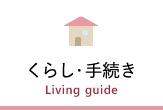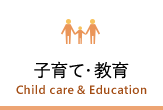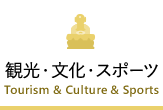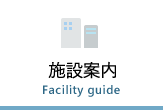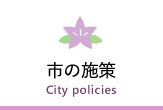ウクライナのアイデンティティ
更新日:2024年3月1日
広報かまがや3月1日号
現在、日本では以前から外国人の受け入れ体制が進み、多くの観光客が来日し、多くの外国人が住むようになっています。日本からはウクライナ避難民に対して、多大なるご支援をいただいいており、この2年間で2,500人ものウクライナ避難民を受け入れていただいています。私達家族もその中に入ります。
日本に住んでいるウクライナ人は、約4,000人少々ですが、母国ではロシアと戦争状態にあり、ウクライナは国家として生まれ変わりつつあります。ウクライナの詳細について、具体的にはウクライナ語や、多文化共生国家としてのアイデンティティの概念について、明らかにすることが重要だと思っています。
日本は島国で、鎖国の時代が長く続いたためか、今でも外国人の人口は全体の2%少々に留まっています。日本国内で、民族性や国としてのアイデンティティを問われてきたことはおそらくほとんどなかったのではないでしょうか。私にはいくつかの民族の先祖がいますが、今は日本に住んでいることもあり、自分の民族性が少し曖昧になっています。
多文化共生国家であるウクライナの一国民として、私の経験をお話します。私は今では存在しないソビエト連邦で生まれました。広大な国家は、数多くの民族と語族を合併してできましたが、公用語はロシア語の一つだけです。ソビエト連邦では、ロシア化が往々にして行われました。ロシア語への強制的な移行や、個別の伝統(習慣)の継続禁止をしたのです。そのため、多くの元ソビエト連邦時代を生きた高年齢層の方達はロシア語を話し、自分達の伝統を知らないことがあるのです。
私は子どもの頃から2か国語を話してきました。ロシア語とウクライナ語は両方とも私の母語です。これまで、自分の民族を聞かれた時は、私はウクライナ人とロシア人とギリシャ人と答えていました。というのも、これら民族に間違いなく自分の先祖のルーツがあることを知っているからです。ウクライナやユーラシア諸国で他の数多くの民族の先祖が存在することは当たり前の状況で、ヨーロッパでは、他県に行く感覚で簡単に他国に行ける場合もあるのです。
2001年の国勢調査によると、ウクライナの人口の77.8%がウクライナにルーツを持つウクライナ人としていますが、同時に、ウクライナは多様な国家でもあり、構成している国の数は100以上に及びます。その中でも多いのはロシア人、ユダヤ人、ベラルーシ人、モルドバ人、ブルガリア人、ポーランド人、ハンガリー人、ルーマニア人、ギリシャ人、タタール人、アメリカ人、ロマ族などです。
しかし、2014年にロシアが表向きにはロシア語圏の人々を守るという口実でウクライナを攻撃してきました。そのため、いつも自分自身をウクライナ人だと思っていましたが、日常生活でロシア語を使用していた私は、多くのウクライナ人と同じように、私達の国のアイデンティティをもっと深く知る必要性を感じました。その結果、ウクライナ人であることと、日常的にウクライナ語を話すことを選んだのは、私の個人的な判断です。
アイデンティティとは、多元的に変わりやすく、動的で、自分が特定のグループに属しているという認識で、社会的な状況によって変化していく可能性があります。このため、国民性は生涯を通して変化することもあります。私の子ども達が日本語を話す集団に入り、日本語が彼らの第2言語になるかもしれないという状況にあるように、皆さんも新しい言語集団に属する可能性もあります。私は結果的に、日常生活でロシア語を話すことを止め、ウクライナ語に変えることにしました。
ウクライナは何百年もの間、ロシアに統治されていたため、ウクライナとロシアには、共通の歴史的遺産があります。私のように、遺伝上似ているところもあります。このため、ウクライナ人とロシア人は似ていると思う人もいるでしょう。しかし、ウクライナ人とロシア人とでは、文化的、言語的、歴史的に明確に違う部分があるので、ウクライナ人は自分達の国とロシアとは別の国であり、ロシア併合に拒否感を示すようになったことを認識することが重要なのです。興味深い点として、ウクライナでは、今、民族的アイデンティティが高まっていることです。最近の世論調査では、ウクライナ国民の92%がウクライナ民族と名乗っていることです。
このコラムを書く際に、私は日立市にある茨城キリスト教大学の講師で日本ウクライナ協会の会員、また、「日本が知らないウクライナ-歴史からひもとくアイデンティティ-」(大学教育出版 2023)の著者でもあるウクライナコミュニティーの研究員のユリヤ ジャブコ氏に相談しました。
皆さんにはいつもウクライナと私達を応援していただき、本当にありがとうございます。
英語版
Today Japan has become a more open country to more tourists coming here and more foreigners living and working near you. Japan also provides great support to Ukrainian refugees and has accepted about 2,500 Ukrainians over the past two years. Among them is me and my two young children.
The Ukrainian community in Japan is only a little more than 4,000 people, but now there is a Russia’s war in our country and Ukraine is being reborn as a nation. I think it is important to clarify some details regarding Ukraine, the Ukrainian language and the concept of national self-identity in a multicultural country.
Japan is an island country and was closed to foreigners for a long time, even today foreigners make up a little more than 2% of the country's total population. The question of ethnicity and national identity probably did not arise often among island residents. I have ancestors from several ethnic groups, but today I also live in Japan. My ethnicity is not obvious to me.
I share with you my experience as a citizen of the multicultural country of Ukraine. I was born in the Soviet Union - this country no longer exists (from 1922-1991).
The huge country was united by many ethnic and linguistic groups, but the state language was one - Russian. In the USSR, the practice of Russification was often carried out - a forced transition to the Russian language and a ban on the continuation of one’s traditions. Therefore, in many post-Soviet countries, people of older generations know Russian, and sometimes don’t know own traditions.
Since childhood I have spoken two languages. Both Russian and Ukrainian are my mother tongues. When asked about my ethnicity before, I always answered that I am Ukrainian, Russian and Greek, since I know for sure that I have ancestors from these ethnic groups. And it is a common situation to have ancestors from many other ethnic groups in Ukraine and other Eurasian countries. As in Europe, sometimes you can get to another country as easily as to another city.
According to the 2001 population census, 77.8% of the population of Ukraine identified themselves as ethnic Ukrainians. At the same time, Ukraine is a diverse country, and it has representatives of more than 100 nations. The most numerous of them are Russians, Jews, Belarusians, Moldovans, Bulgarians, Poles, Hungarians, Romanians, Greeks, Tatars, Armenians, Roma, etc.
But in 2014, Russia attacked Ukraine ostensibly using an absolutely fake excuse - in order to protect the Russian-speaking population. Therefore, I, who always considered myself Ukrainian but used to use the Russian language in daily life, like many Ukrainians, felt the need to understand my national identity better. As a result, being Ukrainian and speaking Ukrainian in my daily life became my personal choice.
Identity is a pluralistic variable, dynamic, perception of oneself and one's belonging to a certain group, which can transform depending on the social context.
So national self-identity can change throughout life. You can also enter a new language group, just as my children are now entering Japanese, which can become their second language. And when I came out, I gave up communicating in Russian in everyday life and switched to Ukrainian.
Ukrainians and Russians share some common historical heritage due to centuries of Russian imperial control of Ukraine. There may be even genetic similarities like in my case. Therefore some people may think that Ukrainians and Russians are close. However, it is essential to recognize that there are also distinct cultural, linguistic, and historical differences between Ukrainians and Russians that let Ukrainians consider themselves a separate nation and explain their reluctance to be part of Russia. What is more interesting, that ethnic re-identification is currently underway in Ukraine. According to the latest poll, 92% of Ukrainian citizens identify themselves ethnic Ukrainians.
To write this article, I consulted Yuliya Dzyabko, a junior associate professor at the Ibaraki Christian University (Hitachi), a member of the Association of Ukrainianists in Japan and a researcher of the Ukrainian community in Japan, the author of the book 「日本が知らないウクライナ - 歴史からひもとくアイデンティティ」(大学教育出版 2023).
I will never get tired of thanking you for helping Ukraine and me. Thank you.
問い合わせ
総務企画部 企画財政課 企画政策室
〒273-0195 千葉県鎌ケ谷市新鎌ケ谷二丁目6番1号 市庁舎3階
電話:047-445-1073
ファクス:047-445-1400


